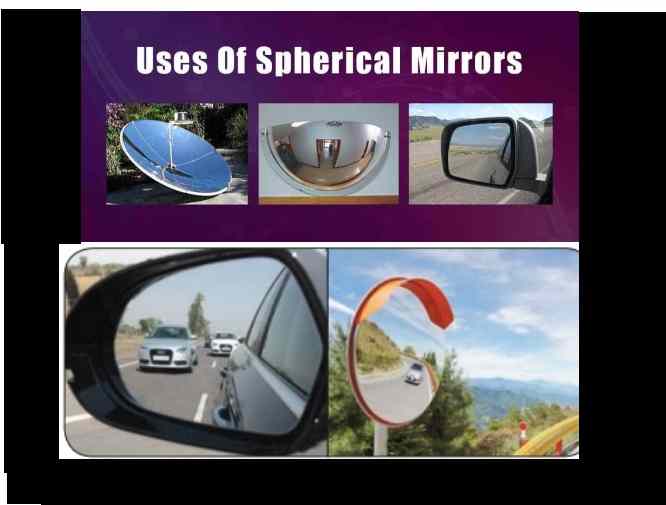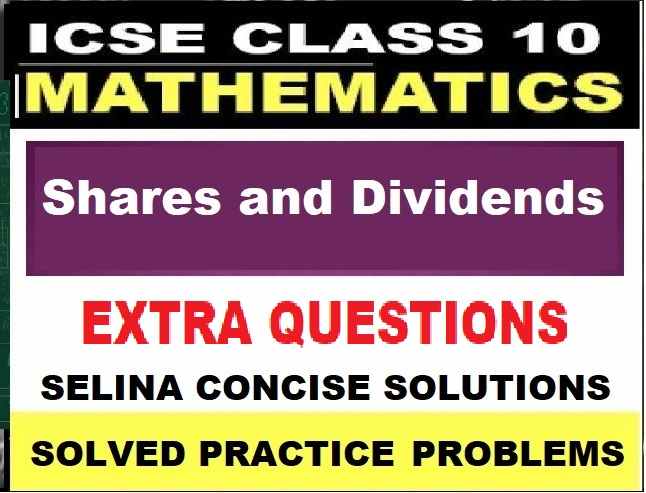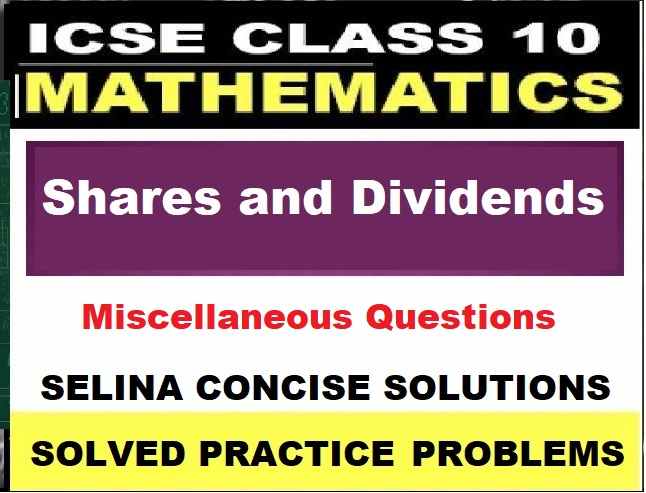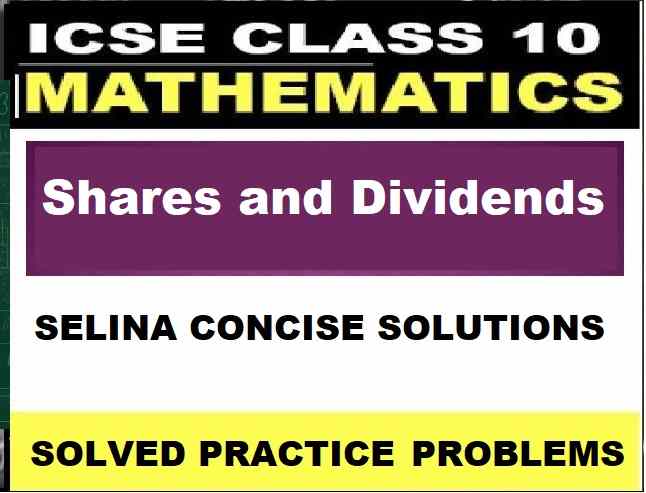Reflection of Light Exe-7C Very Short Answer Concise Physics ICSE Class-9 Selina Publishers. There is the solutions of Very short Answer type Questions of your latest textbook which is applicable in 2024-25 academic session. Visit official Website CISCE for detail information about ICSE Board Class-9.

Reflection of Light Exe-7C Very Short Answer Type
Concise Physics ICSE Class-9 Selina Publishers.
| Board | ICSE |
| Class | 9 |
| Subject | Physics |
| Writer / Publication | Concise Selina Publishers |
| Chapter-7 | Reflection of Light |
| Exe-7C | Spherical Mirrors Image Formation |
| Topics | Solution of Exe-7(C) Very Short Answer Type |
| Academic Session | 2024-2025 |
Exercise- 7C Spherical Mirrors Image Formation
page -189
Very Short Answer :
Q1- What is a spherical mirror?
Ans- A reflecting surface which is a part of a sphere is called a spherical mirror.
Q2- Define centre of curvature of a spherical mirror.
Ans- The point in the centre of the sphere from which the mirror was sliced is known as the centre of curvature.
Q3- Define radius of curvature of a spherical mirror.
Ans-The distance between the centre of curvature and pole of a spherical mirror is known as the radius of curvature.
Q4- What is the aperture of a spherical mirror?
Ans- The portion of a mirror from which the reflection of light actually takes place is called the aperture of the mirror.
Q5- Define the pole of a spherical mirror.
Ans- The pole of a spherical mirror is the centre of the reflecting surface of the spherical mirror.
Q6- Name the mirror which always produces an erect and virtual image. How is the size of image related to the size of object?
Ans- Convex mirror always produces erect and virtual images. The images formed are diminished, i.e. the size of the image is shorter than the size of the object.
Q7- For what position of object, the image formed by a concave mirror is magnified and erect?
Ans- If the object is placed between the pole and focus of a concave mirror, the image formed is magnified and erect
Q8- (a) State the position of object for which the image formed by a concave mirror is of same size.
(b) Write two more characteristics of the image.
Ans (a) If the object is placed at the centre of curvature of a concave mirror, the image formed is of same size.
(b) The image formed is real and inverted.
Q9- (a) What is a real image?
(b) What type of mirror can be used to obtain a real image of an object?
(c) Does the mirror mentioned in part (b) form real image for all locations of the object?
Ans (a) When the rays of light diverging from a point, after reflection of refraction, actually converge at some point, then that point is the real image of the object.
(b) A concave mirror can be used to obtain a real image of an object.
(c) No, it does not form real image for all locations of the object.
Q10- Name the kind of mirror used to obtain :
(a) A real and enlarged image
(b) A virtual and enlarged image
(c) A virtual and diminished image
(d) A real and diminished image.
Ans (a) Concave
(b) Concave
(c) Convex
(d) Concave.
Q11- How is the focal length of a spherical mirror related to its radius of curvature?
Ans- Focal length is half the radius of curvature of a spherical mirror.
f=R/2.
Q12- Write the spherical mirror’s formula and explain the meaning of each symbol used in it.
Ans- The spherical mirror’s formula is 1/u+1/v=1/f
Here, u is the object distance, v is the image distance and f is the focal length of the mirror.
Q13- State the kind of mirror used
(a) By a dentist,
(b) As a search-light reflector.
Ans- (a) Concave mirror
(b) Concave mirror
Q14- Which mirror will you prefer to use as a rear view mirror in a car : plane mirror or convex mirror? Give one reason.
Ans- A convex mirror is preferred as a rear view mirror because it has a wider field of view as compared to a plane mirror of same size.
Q15- How is magnification (m) related to the distance of the object (u) and the distance of the image (v) ?
Ans- Magnification = –(Image Distance)/ (Object Distance)
That is,m = -v/u
— : end of Reflection of Light Exe-7C Very Short Answer Concise Physics ICSE Class-9 Selina Publishers solutions :—
Return to: – Concise Selina Physics ICSE Class-9 Solutions
Thanks


